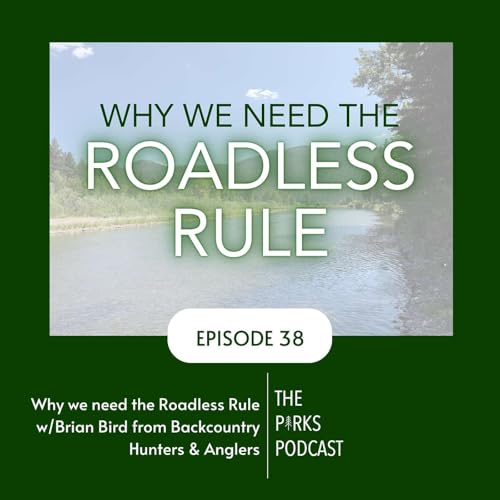
Why we need the Roadless Rule w/Brian Bird from Backcountry Hunters & Anglers (Episode 38)
No se pudo agregar al carrito
Add to Cart failed.
Error al Agregar a Lista de Deseos.
Error al eliminar de la lista de deseos.
Error al añadir a tu biblioteca
Error al seguir el podcast
Error al dejar de seguir el podcast
-
Narrado por:
-
De:
On this episode of The Parks Podcast, I spoke with Brian Bird, a chapter coordinator for Backcountry Hunters and Anglers, about the importance of the Roadless Rule. They begin by defining the Roadless Rule as a measure that prohibits road construction on federal lands to protect undeveloped areas. Bird highlights several key reasons for its importance, including preserving continuous habitat for wildlife, preventing erosion, and protecting against commercial logging.
He explains that the rule provides flexibility for land management, including for fire prevention, contrary to some claims. The discussion also touches on how the rule's potential rescission has been politicized, despite public lands being a nonpartisan issue that is important to all Americans.
Bird explains the rule's specific importance to hunters and anglers. For them, "backcountry" means areas that require effort to access, providing a peaceful and untouched environment free from the noise of vehicles. The rule protects these areas, which are crucial for the integrity of the hunting and fishing experience and the well-being of game species. He also notes the ecological impact of road construction, which can lead to increased sediment and disrupt stream ecology, harming fish populations.
The episode concludes with an urgent call to action. With the public comment period on the proposed rescission ending soon, Bird emphasizes that submitting a comment is a quick and effective way for listeners to voice their support for the Roadless Rule. He encourages everyone to use the provided links from Backcountry Hunters and Anglers to contact their legislators and the Department of Agriculture, and to share the episode to raise awareness about the issue.


